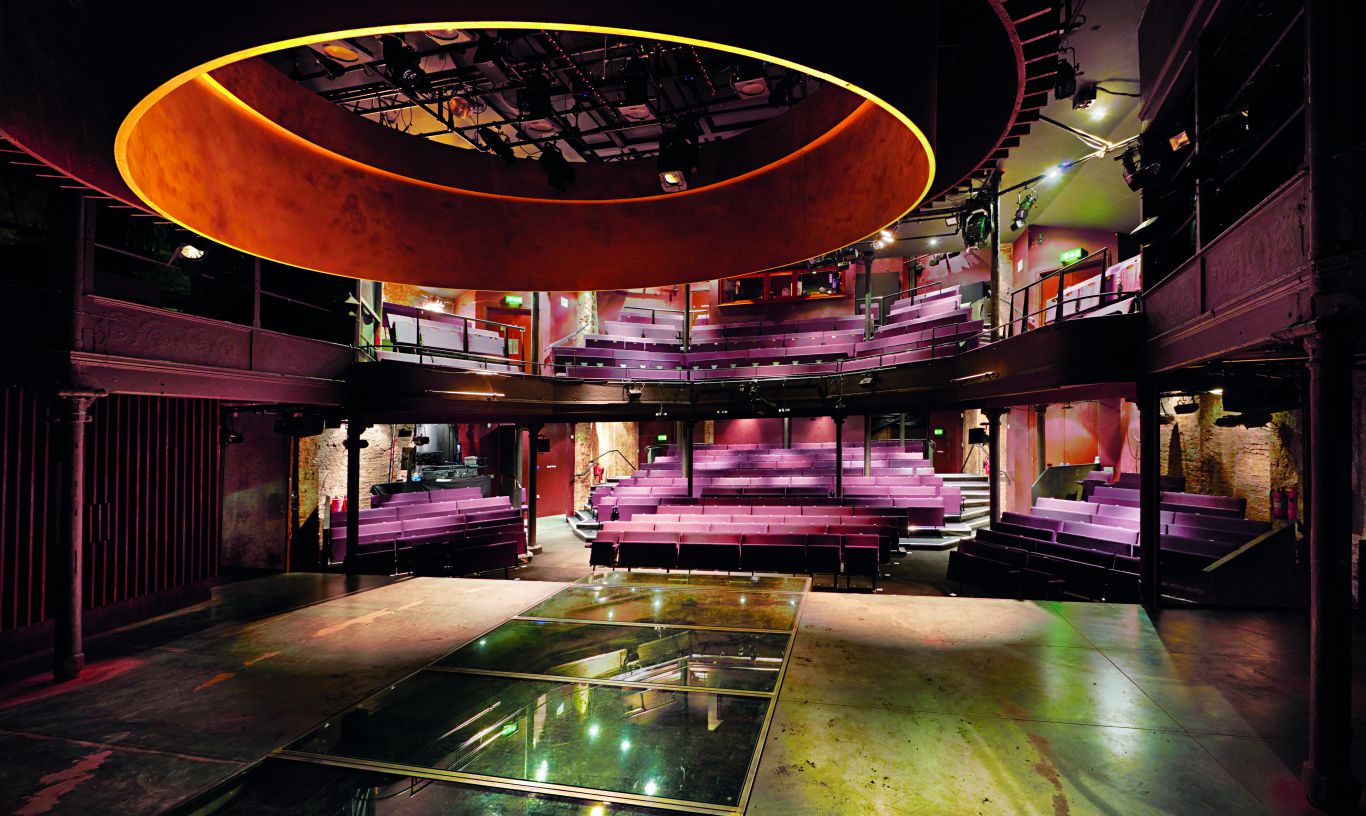
The seating bank in the 600-seat amphitheatre-like lecture hall was where the theatre’s curved back brick wall now encloses the stage action. The upper floor, now the circle area, housed a small natural history museum, committee room and library; the basement, where now there are dressing rooms and the wardrobe, had a small warren of study rooms and caretaker’s quarters.
The institute was dissolved in 1872 and its assets sold off. The new owners opened a club for local gentlemen to read newspapers and play billiards, but by 1890 the place was commandeered by the Salvation Army as a new citadel, and they removed all the smaller rooms and the division of two floors, creating something more like the present arrangement with a large hall facing the curved wall, and a new balcony.
The Salvation Army moved out in 1956, selling the premises to a local businessman, Mr Beck, who packed carnival novelties –and sold and hired out fancy dress attire and circus equipment; this was the warehouse and despatch centre for his nearby shop on Upper Street.
LOCAL ADVERTISING
As the building fell into disrepair in the 1960s, new owners were sought – theatre companies were mooted – but Mr Beck himself, a secret transvestite, was murdered in 1971 in his cottage in Wales by his brother-in-law; the press cited his links with mobsters and cross-dressers in the criminal underworld, and the business closed down.
After local residents fought to save the building from demolition, Beck’s derelict emporium was bought and ‘rediscovered’ by the director Pierre Audi and two university friends, Will Bowen and Chris Naylor, in the mid-1970s.
The Almeida Theatre Company was launched at the Edinburgh Festival in 1979 and the building finally opened as the Almeida Theatre in 1981 with a Grade II listing and a series of stark, and startling, productions of classics, visiting companies such as Shared Experience and Complicite, and a contemporary music festival.


